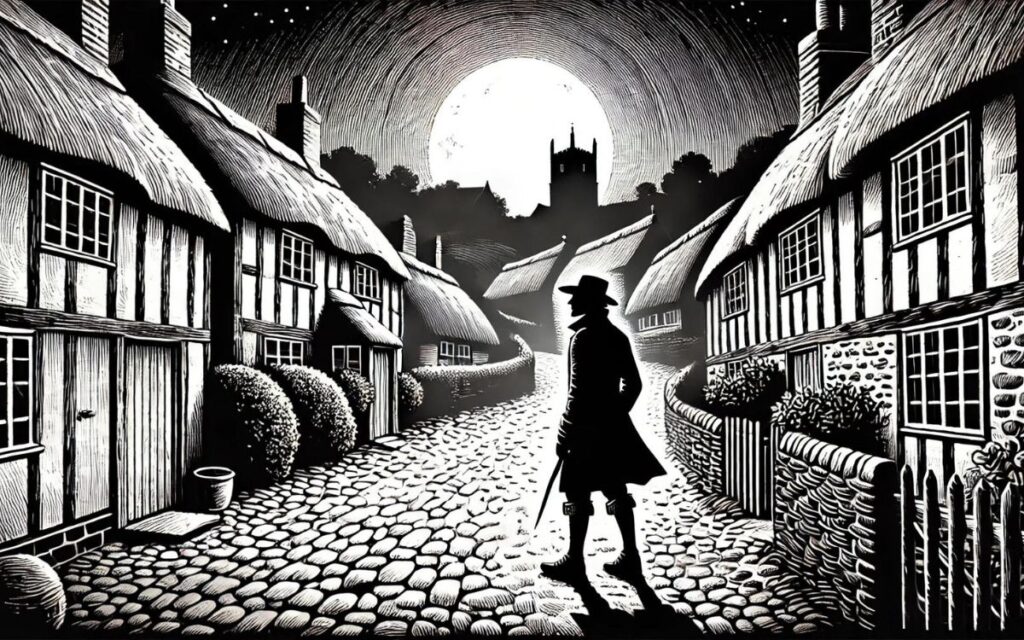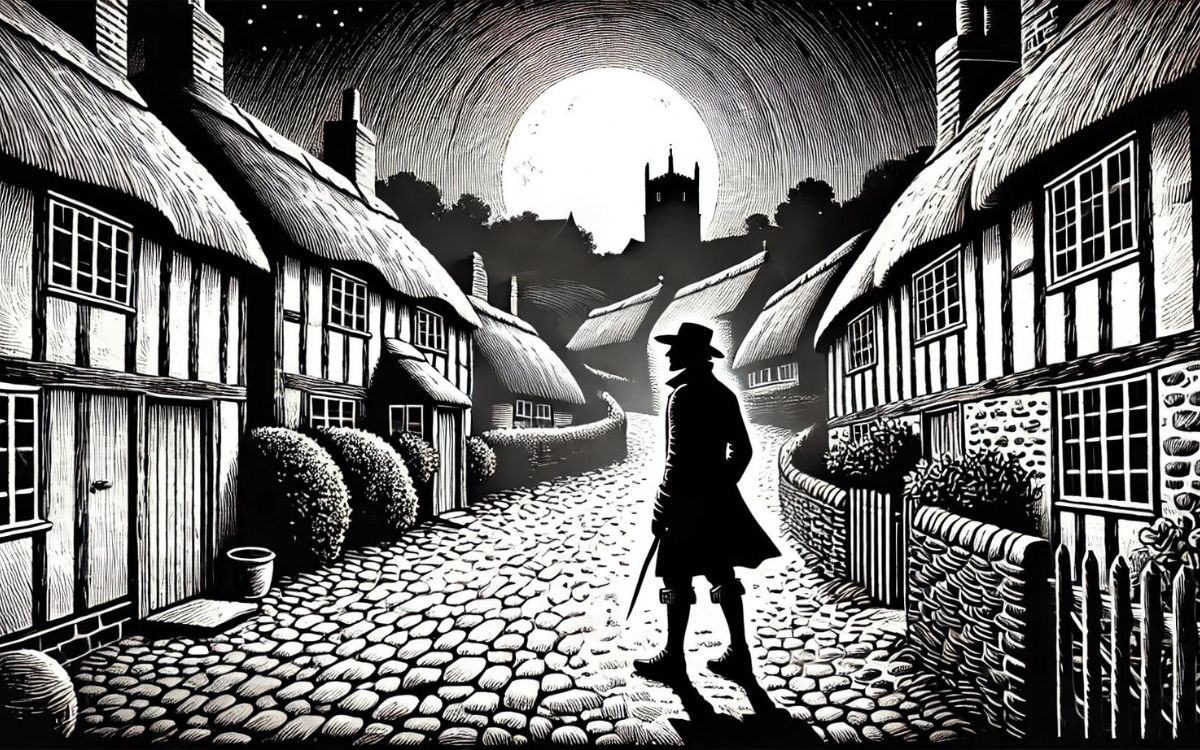The Campden Wonder is one of Britain’s most baffling true crime mysteries, involving a disappearance, false confessions, and the unexpected return of the presumed dead, writes LES HEWITT

In the annals of British criminal history, the “Campden Wonder” stands as a chilling reminder of the fallibility of human memory, the fragility of justice, and the enduring power of mystery.
This 17th-century case, which unfolded in the idyllic Cotswolds village of Chipping Campden, continues to fascinate and confound, even centuries after its enigmatic events.
The Disappearance of William Harrison
On a summer’s evening in 1660, William Harrison, a respected steward in the service of the Viscountess Campden, set off on a routine errand to collect rents from a nearby village. He never returned. As darkness fell and anxiety mounted, a search party was hastily assembled, but no trace of Harrison could be found.
The following day, his servant, John Perry, was dispatched to continue the search. Perry returned with a bizarre and unsettling tale. He claimed to have been accosted by two horsemen who robbed him of his master’s money and then murdered Harrison in cold blood.
A Web of Suspicion and False Confessions
Perry’s story, though riddled with inconsistencies, was enough to cast a pall of suspicion over the Harrison household. Under intense interrogation, Perry’s mother and brother also confessed to involvement in the alleged murder, painting a grim picture of a family conspiracy.
Despite the lack of physical evidence or a body, the three Perrys were brought to trial and found guilty. They were subsequently hanged for a crime that, as it would later transpire, may never have even occurred.
The Return of the “Dead” Man
Two years after the executions, William Harrison reappeared in Chipping Campden, as inexplicably as he had vanished. He recounted a harrowing tale of being kidnapped by a group of sailors, sold into slavery in Turkey, and finally escaping to make his way back home.
Harrison’s return sent shockwaves through the community, exposing the tragic miscarriage of justice that had taken place. The Perrys, it seemed, had been wrongly convicted and executed based on false confessions and circumstantial evidence.
Unravelling the Enigma
The “Campden Wonder” remains an unsolved mystery to this day. What truly happened to William Harrison during his two-year absence? Did he stage his own disappearance to escape debts or personal troubles? Was he, as some have suggested, a victim of amnesia or mental illness? Or was there a more sinister explanation, perhaps involving a genuine kidnapping or even a secret double life?
The case also raises troubling questions about the nature of justice in 17th-century England. The reliance on confessions, often extracted under duress, and the lack of rigorous forensic investigation led to a tragic outcome for the Perry family. It serves as a stark reminder of the importance of due process and the presumption of innocence.
The Enduring Legacy
The “Campden Wonder” has captured the imagination of writers, historians, and true crime enthusiasts for centuries. It has been the subject of numerous books, plays, and even an opera, each attempting to unravel the enigma and shed light on the dark events of that summer in 1660.
The case continues to resonate in legal circles, serving as a cautionary tale about the dangers of false confessions and the importance of upholding the principles of justice. It stands as a testament to the enduring power of mystery and the human capacity for both resilience and deception.
In the quiet village of Chipping Campden, the memory of the “Campden Wonder” lingers on. The story is passed down through generations, whispered in hushed tones on dark winter nights. It serves as a reminder that even in the most idyllic of settings, darkness can lurk beneath the surface, and the truth can be as elusive as a ghost.
What do you think about the mystery of the Campden Wonder? Do you have any theories about what really happened? Tell us in the comments section below!



